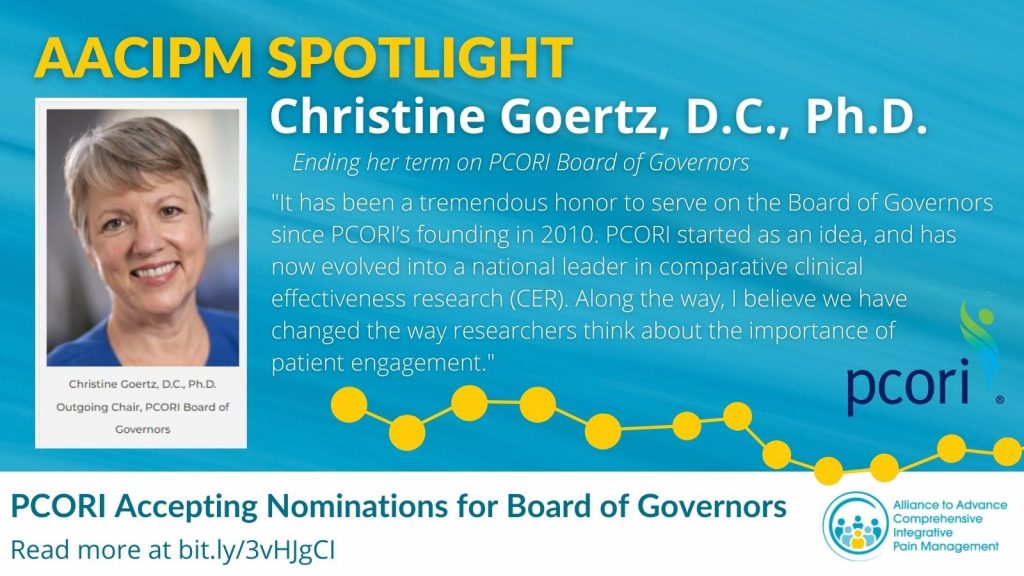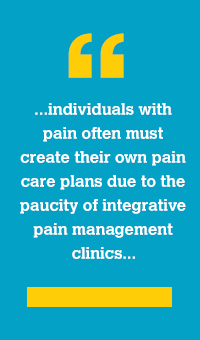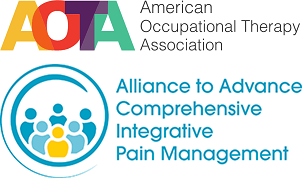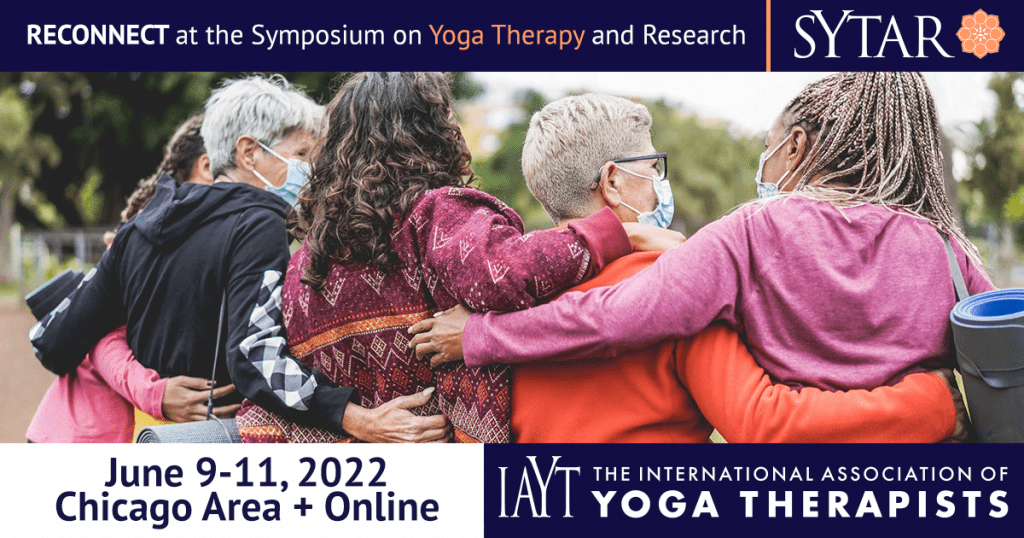
SPOTLIGHT: Dr. Christine Goertz on the Past, Present, and Future of PCORI
After serving on the Patient-Centered Outcomes Research Institute (PCORI) Board of Governors for 12 years, Dr. Christine Goertz, D.C., Ph.D., will leave the Board at the end of September 2022. The goals and needs of the PCORI Board of Governors significantly overlap with the expertise and interests of AACIPM’s many participants, so we took a moment to talk with Dr. Goertz about her time with the Board, PCORI’s role in the future of health policy, and why others should consider getting involved.
AACIPM: What was it like for you to be involved with PCORI in the past dozen years?
Dr. Goertz: It has been a tremendous honor to serve on the Board of Governors since PCORI’s founding in 2010. PCORI started as an idea, and has now evolved into a national leader in comparative clinical effectiveness research (CER). Along the way, I believe we have changed the way researchers think about the importance of patient engagement. PCORI is unique in its emphasis on patients in all of our work, including the research we fund. Our particular focus is helping people to make sense of the many options they face when navigating the health care system. To that end, PCORI is intentional about seeking out an array of views – this culture of inclusion has earned PCORI the support and respect of a wide range of health care stakeholders. […]
SPOTLIGHT TO ACTION: PCORI Accepting Nominations – Apply by 5/10
 The U.S. Government Accountability Office has issued a call for nominations to fill seats on the Patient-Centered Outcomes Research Institute (PCORI) Board of Governors.
The U.S. Government Accountability Office has issued a call for nominations to fill seats on the Patient-Centered Outcomes Research Institute (PCORI) Board of Governors.
As the needs of the PCORI Board of Governors significantly overlap with the expertise and interests of AACIPM’s many participants, we see this as an exciting opportunity for members of our alliance to impact policy at the federal level, and we sincerely hope you will consider applying.
PCORI is accepting nominations in the following categories:
- a surgeon,
- a state-licensed integrative health care practitioner,
- a representative of patients and health care consumers,
- a representative of device manufacturers or developers,
- a representative of pharmaceutical manufacturers or developers, and
- a representative of private payers who represents health insurance issuers.
Letters of nomination and resumes must be emailed to PCORI@gao.gov no later than May 10, 2022.
PCORI is also accepting applications for Merit Reviewers and Peer Reviewers, two vital parts of their review process. Applications are welcome from scientists, patients, caregivers, clinicians, policy makers, hospital and health systems, payers, purchasers, industry, researchers, and training institutions.
April is Occupational Therapy Month!
 Strategies for Incorporating Occupational Therapy into Your Pain Toolbox
Strategies for Incorporating Occupational Therapy into Your Pain Toolbox
AACIPM has partnered with AOTA to help the vast array of multidisciplinary pain management practitioners to better understand the function of occupational therapy, when it may be appropriate for patients, and how it works synergistically with other therapies.
AACIPM is excited to announce the release of “The Role of Occupational Therapy in Comprehensive Integrative Pain Management,” a new white paper available now for free download.
Developed in partnership with the American Occupational Therapy Association (AOTA), this white paper is intended to provide additional context to help multistakeholders better understand the role of occupational therapy in the pain management toolbox.

Due to the fact that individuals with pain often must create their own pain care plans due to the paucity of integrative pain management clinics available, we hope this will aid in promoting more connections and awareness for many.
This white paper will answer questions including:
- What is Occupational Therapy?
- What role does OT play in a comprehensive pain management program?
- How do occupational therapy practitioners treat pain?
- When is a referral to an OT appropriate?
- Is OT care for pain management covered by insurance?
- What type of training do OTs receive?
- Can patients access OT in all communities?
- What must be done to better integrate OT services into a comprehensive pain management model?
- Can you provide an example of what an integrative team approach that includes OT looks like?
Complete with (1) a detailed table of possible areas of daily life impacted by chronic pain, along with OT interventions that can help, and (2) a case study of a person with complex pain who is using OT alongside other treatments, this paper will give readers a thorough understanding of how to incorporate occupational therapy into their own pain management toolbox.
National Updates
NCCIH Requests Information on Determinants for Whole Person Health
![]() The National Center for Complementary and Integrative Health (NCCIH) is soliciting public comment as it seeks to define a set of key determinants of health that address factors that can influence health either positively or negatively, and that encompass the full continuum of biological, behavioral, social, and environmental domains (such as age, genetic predisposition, sleep, environmental exposure, etc.).
The National Center for Complementary and Integrative Health (NCCIH) is soliciting public comment as it seeks to define a set of key determinants of health that address factors that can influence health either positively or negatively, and that encompass the full continuum of biological, behavioral, social, and environmental domains (such as age, genetic predisposition, sleep, environmental exposure, etc.).
NCCIH is limiting its request to no more than 20 determinants to ensure a list sufficiently comprehensive to capture the key elements of whole person health, yet succinct enough to be manageable in terms of any eventual development/deployment of a CDE-based measurement tool. This list could ultimately be used to identify a set of common data elements to be used in either research or patient care.
Responses to this Request for Information are due by June 17, 2022.
AACIPM responds to CDC Opioid Guideline
 In response to CDC’s release of the draft CDC Clinical Practice Guideline for Prescribing Opioids—United States, 2022, AACIPM has issued a public comment on behalf of 44 individual and organizational signatories representing a broad spectrum of health care providers, payors, academia, policy and healthcare experts, and people living with pain.
In response to CDC’s release of the draft CDC Clinical Practice Guideline for Prescribing Opioids—United States, 2022, AACIPM has issued a public comment on behalf of 44 individual and organizational signatories representing a broad spectrum of health care providers, payors, academia, policy and healthcare experts, and people living with pain.
The letter expressed support for a number of changes found in the updated guideline, including the CDC’s emphasis on non-opioid, non-pharmacological, and integrative therapies—along with its acknowledgment that reimbursement and coverage issues are often a significant barrier to accessing this type of care. However, the letter also recommended changes to the guideline that would better educate pain providers about the many treatments and providers that should be considered when developing individualized treatment plans.
President Biden Outlines Government-Wide Response to Long COVID
 In a memorandum to the heads of executive departments and agencies, President Biden has ordered a largescale federal response to addressing the long-term effects of COVID-19. The memo directs the Secretary of HHS to coordinate the effort, working with public and private sector partners to mount a full and effective response.
In a memorandum to the heads of executive departments and agencies, President Biden has ordered a largescale federal response to addressing the long-term effects of COVID-19. The memo directs the Secretary of HHS to coordinate the effort, working with public and private sector partners to mount a full and effective response.
By August 3rd, the Secretary shall publish a public report outlining services and mechanisms of support across agencies to assist the American public in the face of the far-reaching and long-term effects of COVID-19, which includes a variety of pain-related symptoms. The report must specifically address available Federal services to support individuals experiencing Long COVID, mental health and substance use issues spawned in the wake of the pandemic, and the long-term effects of COVID-19 on underserved communities and efforts to address disparities.
Federal Funding Available for Various Pain-related Projects
Funding opportunities related to pain management, integrative care, whole health, and other related topics continue to abound.
 The NIH HEAL Initiative is currently aiming to fund:
The NIH HEAL Initiative is currently aiming to fund:
- Coordinating Center for National Pain Scientists Career Development (Notice of Intent to Publish a Funding Opportunity; Estimated Application Due Date is July 15th)
- Team Research for Initial Translational Efforts in Non-addictive Analgesic Therapeutics Development (LOI Due May 9th)
- Discovery and Validation of Novel Targets for Safe and Effective Pain Treatment (LOI Due May 2nd)
- Research Supplements to Promote Diversity in Health-Related Research (Admin Supp – Clinical Trial Not Allowed) (Application Due May 15th)
- Discovery of Biomarkers and Biomarker Signatures to Facilitate Clinical Trials for Pain Therapeutics (LOI Due May 24th)
- Discovery and Functional Evaluation of Human Pain-Associated Genes and Cells (LOI Due June 7th)
![]() NIDA is currently aiming to fund:
NIDA is currently aiming to fund:
- Public Health Research on Cannabis, including impact of polysubstance use on health outcomes, including interactions (substitution/complementation) of cannabis product use with alcohol, tobacco, and prescription and nonprescription opioids. (Begins accepting applications June 5, 2022)
Partner Highlights – Examples of Yoga Therapy as Part of Team
ICYMI: AMA’s Story: Putting the “Multi” in Multimodal Care for Patients with Pain
An example of integrative pain care from American Medical Association
 In case you missed this last month, AACIPM shared information with AMA about Inner Atlas, a unique method of facilitating whole person, multimodal pain care led by Whitney James, MD, MHS, Kori Moore-Gibson, C-IAYT and Malisa Szalkiewicz, M.ED, C-IAYT.
In case you missed this last month, AACIPM shared information with AMA about Inner Atlas, a unique method of facilitating whole person, multimodal pain care led by Whitney James, MD, MHS, Kori Moore-Gibson, C-IAYT and Malisa Szalkiewicz, M.ED, C-IAYT.
As a connector of dots to promote whole person-centered pain care, AACIPM has collaborated with the AMA to share this example across many stakeholders.
 Arizona physician Whitney James, MD, has developed her own program about the mind-body connection as part of optimal care for patients.
Arizona physician Whitney James, MD, has developed her own program about the mind-body connection as part of optimal care for patients.
In her own words, Dr. James, neurosurgeon, discusses her practice philosophy and how she built a strong team to help her put her vision into practice:
“It’s been my experience that patients with chronic pain are best treated with a multimodal treatment plan.”
Read the story on AMA’s microsite, titled Putting the ‘Multi’ in Multimodal Care for Patients with Pain.
Reach out to AACIPM if you want to share unique models of caring for people with pain.
Premier Conference on Yoga Therapy & Research

Grab your spot for IAYT’s Symposium on Yoga Therapy and Research today—early birds receive discount pricing! Book by May 9 for In-Person Conference $495/$595 (IAYT members/nonmembers), or Virtual Conference $395. Register here: iayt.org/sytar2022
Network with people who believe in what you do, feel refreshed after daily yoga practices, and help advance the profession of yoga therapy!
Message from the Director
 I hope this month’s issue finds each of you staying as healthy as possible. There are many resources in this issue I hope you’ll find helpful.
I hope this month’s issue finds each of you staying as healthy as possible. There are many resources in this issue I hope you’ll find helpful.
I look forward to being a part of the Academic Consortium for Integrative Medicine and Health Congress Meeting in May in Phoenix and hope to see many of you there. I’m very excited to be joining many esteemed colleagues at this event.
Please consider nominating yourself or others for the open PCORI positions. Read more from Christine Goertz, DC, PhD, AACIPM Advisory Committee member and outgoing Chair, PCORI Board of Governors about her perspectives from the past dozen years engaged with PCORI.
Don’t miss our new white paper, developed in partnership with the American Occupational Therapy Association. We believe this will be a helpful resource across our stakeholders’ interests.
Also, you can find AACIPM’s group letter to the CDC’s open comment on their guidelines for prescribing opioids for pain that was developed with input from many of you. In case you missed it last month, you’ll see the story from AMA – the third piece they have released about integrative pain care (see more here). And don’t miss checking out IAYT’s Symposium on Yoga Therapy and Research – this will be a fantastic opportunity to learn the latest and greatest while among like-minded colleagues.
More resources are in development and will be shared in the forthcoming issues. As always, please reach out with any feedback or ideas.
Onward and Upward!
Amy
Relevant Reading
![]() Men And Women Really Do Process Pain Differently, And Now We Know One Reason Why, IFL Science, April 28
Men And Women Really Do Process Pain Differently, And Now We Know One Reason Why, IFL Science, April 28
Podcast: Pain Relief is a Civil Right, ACLU, April 28
Neuronal plasticity in chronic pain-induced anxiety revealed, Science Daily, April 27
How policy change can ease the mental health impact of chronic pain, Benefits Pro, April 27
Clinical and Psychological Impact of Chronic Pain in People with Chronic Obstructive Pulmonary Disease, Dovepress, April 22
Acupuncture may be the key to combatting nerve pain, BrandAve, April 5
Long COVID pain explained: Gene signature may play a role, Medical News Today, April 4
Feedback
We welcome your input! What do you like? Do you have a contribution for an upcoming newsletter? Send us your comments, suggestions, or contributions.